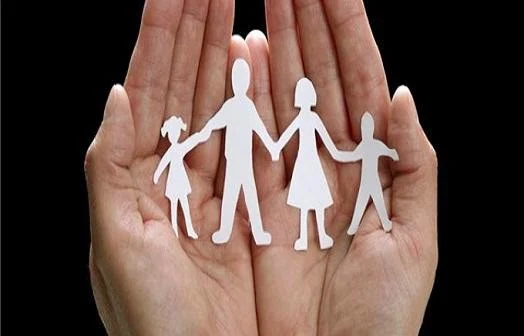Functions of the Family
Functions of a family may be different in different cultures. William F.Oghlum determined the following functions of a family after observing about one hundred families in 1950:
l. Reproduction :
To survive human race, family reproduction is its function to keep the social life continue and its activities also. A family reproduces children in an agreed way of marriage to maintain social and cultural life.
2. Regulation of Sexual Behaviours :
A family fulfils the sexual needs of a society by selecting proper mates and holds ceremonies of marriage and engagements. Family is the only way to meet the sexual requirements of an individual under certain restrictions and there have never been allowed any breach of these because any irregularity in this respect, affects the social set up of a society.
3. Security or Protection :
Contrary to other animals, human children need social, physical and economic protection for a long time to rely on parents and relatives. It is the family that provides this protection with responsibility. A family fulfils all
responsibilities to look after, education, economic needs, old-age care and treatment of its family members. Family is a sure source of protection.
4. Affection and Companionship :
A family provides love and passion of love to individual and a pleasant environment to make an individual free from fear of separation. A family meets the emotional needs of an individual, makes mutual relations pleasant and makes other attend to our problems 'and help us at the time of need.
5. Socialization :
A family is the greatest source of socialization. A child learns through social interaction his culture of language, dress, norms, traditions, habits and skills to adapt him with the outer social life in a better way. In the modern age, family is responsible to arrange the education of children according to its economic position and to make them good citizens of a society.
6. Providing Social Status :
Because of background of family and social position in the family, one gets inherited ascribed role and family gives as a gift to the child race, decent and ascribed status that determines the social position in the society and social stratification. Economic conditions of family affect child by providing him chances of higher education and help him to make his social position better.
7. Transmission of Culture :
The most important latent function of family is transmission of culture informally to the next generation. A family teaches children about dress, regards, cultural values, Folkways and mores etc. Marriage parties are important activities of family to teach customs, to meet with relations and their compliments. Thus the culture is transferred to the next generation informally.
8. Religious Functions :
A child learns religious activities by imitating the religious activities of a family that to convey in accurate manners all religious values to the individuals enable them to follow the religion. A family uses pressure for religious socialization of an individual but environment counts very much in this respect. The personality of an individual reflects the tendency of the family towards religion. A family deepens the religious impression on the minds of an individual.
9. Personality formation :
At the time of birth, a child has some physical and mental abilities by inheritance but their growth takes place in the environment of a family. The evolution of self-concept and its completion takes place through social interaction and behaviour and the other members of a family determining the direction of personality. Family love provides a balanced environment for the growth of a child’s personality, creating in him a sense of responsibility and confidence. Conversely, if a child gets less attention and love from a family he falls a prey to inferiority complex, creating in him a sense of rebellion and fartherness from domestic environment. He may be inclined to crimes. So, a family plays an important part in developing personality.
10. Provision of Recreational Facilities :
Whatever is type of society whether traditional, agrarian or industrial, provision of recreational chances is the function of a family. To ensure health and It interest with domestic environment, different games and recreations are arranged. To provide toys to children, to swing, to make children walk in a park, to provide
recreation through radio and TV are the responsibilities of a family. A family saves its individuals from boredom, monotony and keeps them healthy through these recreational activities.









0 Comments